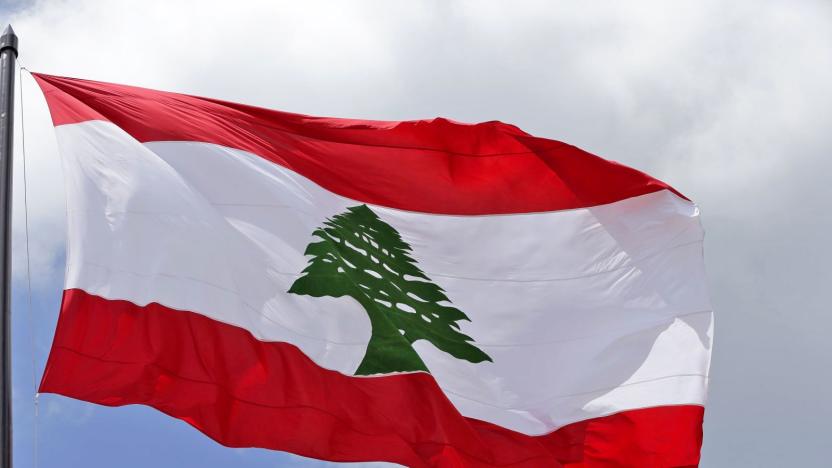lebanon
Latest

Lebanese hackers stole a ton of data then left it on an open server
The Electronic Frontier Foundation and mobile security company Lookout released a report today detailing a major hacking campaign -- dubbed Dark Caracal -- that's believed to have originated from Lebanon's General Directorate of General Security (GDGS), one of the country's intelligence agencies. The companies found information gathered from thousands of victims from over 20 countries through espionage efforts extending back to 2012. Targets included military personnel, journalists, activists, financial institutions and manufacturing companies and some of the stolen data included documents, call records, texts, contact information and photos. Michael Flossman, a Lookout security researcher, told the Associated Press, "It was everything. Literally everything."

Arctic seed vault grows as defense against food crisis
In light of President Donald Trump's rise to power, some people are seriously worried about the planet's health. Count The Bulletin of the Atomic Scientists among that group, since they recently pushed the Doomsday Clock to two and half minutes to midnight. Even if they think humanity is closer to extinction than it was just a couple months ago, we're now better prepared to respond to a food crisis.

3D printers find a home fighting disease in Syrian refugee camps
Sure, 3D printers can make guns, but it can also be used for good: for instance, its capability to create whatever you want gives it a bright future in humanitarian efforts around the globe. Oxfam (an organization that seeks to eradicate poverty) agrees, that's why it has partnered with online 3D printables platform MyMiniFactory for a mission in Lebanon. Their first collaboration? To find a printable water-efficient hand wash system for Syrian refugees who fled to the country in order to lower instances of diarrhea and other diseases. Here's how the partnership works: MyMiniFactory will accept design submissions from anyone, and then select a few to email the Oxfam team. The org will then print and test these designs onsite, and then email MyMiniFactory on how to tweak them and make them better. Sadly, not every org out there comes with a 3D printer in tow, but a lot of humanitarians recognize the technology's benefits and hope to take advantage of it soon. With the advent of more affordable 3D printers, that's looking more and more possible. So, we wouldn't be surprised if organizations start lugging around printers instead of actual equipment to produce everything from housing to medical supplies in the future.

Braille-It Labeler brings low-cost printing, 'sightless construction' to the blind
It's certainly not the first Braille label printer we've seen, but Ted Moallem's Braille-It Labeler does bring notably unique element to the table -- namely, "sightless construction." Presented at this year's A Better World by Design conference, this compact device allows blind or visually impaired users to print out adhesive labels in Braille, thanks to a simple six-button design that's compatible with any Braille alphabet. Made out of relatively common materials like aluminum and steel wire, the Braille-It can also be constructed by the blind themselves -- a potentially groundbreaking development for a demographic that's too often ignored by the retail sector. Moallem, a former MIT grad student, explains: Blind people cannot depend on mainstream commercial forces to advance the cause of Braille literacy. Nearly two centuries after the invention of Braille by a blind adolescent boy, the most widely used Braille-writing tools, the slate and stylus, are quite similar to the tools used by Louis Braille himself. In the hands of the sighted, the low-cost Braille industry has stagnated. The inventor tested his label maker at a workshop last year in Katpadi, India, where blind trainees successfully taught other visually impaired users how to create their very own Braille-It. Moallem is now looking to set up similar workshops across other locations, including Senegal, Liberia and Lebanon. The ultimate goal is to empower blind consumers to create their own low-cost and potentially life-saving tools -- particularly in developing countries, which account for an estimated 90 percent of the world's blind population. If successful, Moallem's invention and ensuing campaign could provide a remarkably simple solution for a large, yet often neglected population. We certainly wish him the best of luck. Find out more at the source link below, or check out Inhabitat's extensive coverage for more images and insight.

Promotional Consideration: Humanitarian aid crosses with the DS
Promotional Consideration is a weekly feature about the Nintendo DS advertisements you usually flip past, change the channel on, or just tune out.As we've discussed before, a company's logo or branding can be just as important as the commercials and ads used to promote a product. This week, we'll take a look at a print piece that combines our favorite handheld with one of the most recognizable emblems in the world. Join us past the post break!



